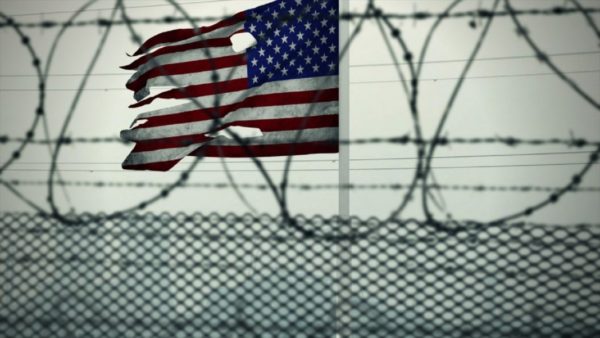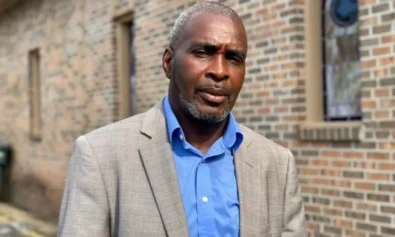
In recent years, the rate of incarceration for African-Americans has decreased, as rates of imprisonment for whites have increased, causing criminal justice experts to ask why this is happening.
(Photo: pxhere)
Life after a criminal conviction can be costly, messy or both. Too often, those charged with minor offenses are forced to deal with consequences long after they’ve paid their debt to society, unable to access certain academic, housing and job opportunities due to their criminal record.
Sealing such records can prove costly for some as well, sometimes requiring a lawyer to complete the procedure. Now Pennsylvania residents will become the first in the nation to have certain low-level offenses removed from criminal records — provided all court fees are paid and no other convictions occur within a decade. Those who have been arrested but never convicted of a crime will be eligible for immediate sealing of those records.
Working across the aisle, two sponsors, Republican Rep. Sheryl Delozier and Democratic Rep. Jordan Harris, first introduced House Bill 1419 in March 2017. After passing the Pennsylvania House and Senate, the measure was officially signed on June 28 by Democratic Gov. Tom Wolf. who hailed the measure as a “really good thing” that could potentially affect millions of residents.
Speaking with the Pittsburgh Post-Gazette, Delozier explained how the “Clean Slate” law can make it easier for those with minor criminal convictions to reenter the workforce. “When you’ve done something wrong as a youth or you make a mistake, businesses want good workers,” she said.
“Getting an underage drinking citation shouldn’t keep you from getting a job that you are very good at,” she added.
As Governing reports, “3 million Pennsylvanians, more than a third of the state’s working-age population, have criminal records, with many carrying misdemeanor records or arrests without conviction.”
Previously, those arrested or convicted for low-level offenses had to petition to have their records expunged. Under the new law, those with second- or third-degree misdemeanor convictions that carried two-year sentences or less — or were never convicted — would become eligible to have their records sealed automatically via a new court computer system, making Pennsylvania the first state in the nation to provide a measure for automatically sealing adult criminal records.
There are limits to the violations covered by Clean Slate, which targets records for nonviolent crimes. Those convicted of offenses involving child endangerment, endangering the welfare of children, guns, kidnapping, murder, sexual assault and/or rape are not eligible for relief under the new law.
But for some such legislation is met with feelings of “too little, too late,” especially by those that have already experienced the consequences of being unable to secure adequate housing or employment due to a previous conviction or criminal record. These effects are particularly acute across low-income communities that have disproportionately been hit by high incarceration rates for minor infractions.
According to Talk Poverty, “Studies have shown that black men without criminal records get callbacks for job interviews at rates below those of white men with criminal records; and for a black man with a record, the callback rate is almost negligible.”
With African-Americans arrested at more than five times the rate of whites, measures like the “Clean Act Bill” may assist in bridging the inequality gap, particularly for those in low-income communities.
In addition to drawing bipartisan support, Clean Slate also received a boost from a number of national organizations and other individuals, including the NFL Players Coalition. Two Philadelphia Eagles players, wide receiver Torrey Smith and safety Malcolm Jenkins, co-wrote an editorial for CNN in support of Clean Slate in June. Jenkins heads the players group.
“Employers, landlords and schools wouldn’t be able to see these minor records. People who need opportunities would be judged by who they really are, not by their old mistakes,” they wrote.
Their appeal for relief for those who have turned their lives around continued, “People with minor records would better be able to provide for their families and contribute to their communities. Employers would be able to hire the best people possible, based on their skills and their potential. Neighborhoods where large percentages of people are shut out of the labor force by their records and our entire economy would thrive.”
What seemed unlikely in the swing state has now happened, although as Governor Wolf admitted while signing a similar measure in 2016, there’s more to be done. “The United States is the world leader in incarceration, and a criminal record often carries a lifetime of consequences that often lead to poverty or re-incarceration,” he said.
Calling for an end to such stigmas, he added, “Too many first-time and low-level offenders are serving their time and unable to improve their lives after leaving the system because they have a criminal record. And, they are too likely then to return to the system. We must do everything we can to break this cycle; it is robbing too many of their lives and it is costing taxpayers far too much.”
Clean Slate goes into effect in January 2019.


